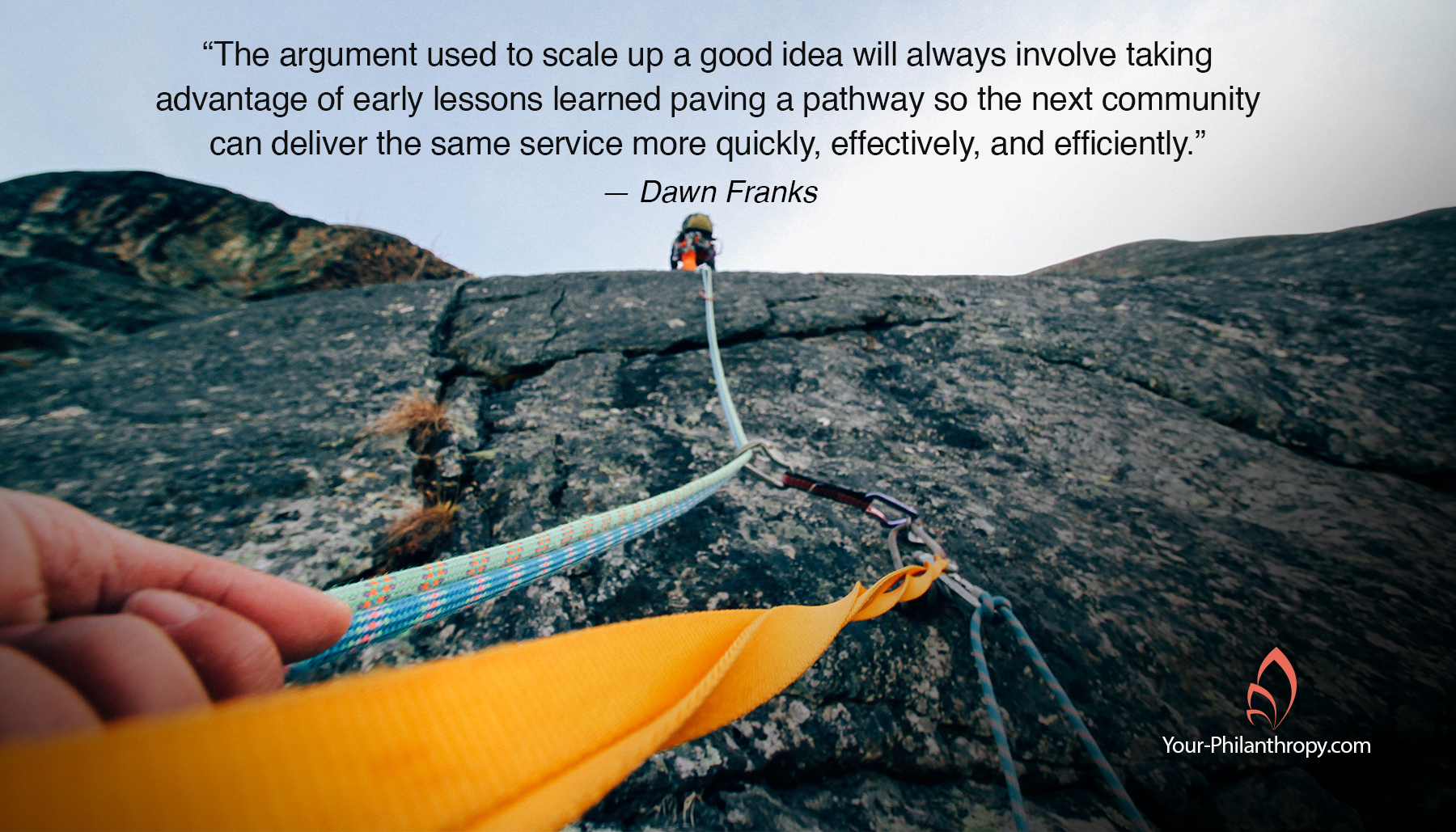If it’s such a great idea why aren’t they doing it everywhere? Or maybe it sounds like this; it’s an incredible idea. It should be in every school, neighborhood or every community. Sometimes it even sounds like this. I just had a phone call from someone in California or Mississippi or Tennessee about our program. They want to know how to do it for their community.
That’s probably an executive director talking to a board member or a donor. They are excited about the possibilities.
The questions and phone calls are exciting stuff for any nonprofit executive director. It seems to validate their hard work. It’s the pat on the back they craved.
When that same executive director asks for our financial help to scale the program to reach those in need there is another set of questions to ask.
Before I dive into those critical concerns, let me answer a question you might already be asking. Why bother? Why not let those other schools, neighborhoods, and communities figure it out themselves? When they do, they can use their local resources and donors to fund the idea.
In reality, that describes what happens almost every time. Someone learns about a good idea they think will work. They recruit the volunteers, donors, and staff needed to do it. In effect, they pave a proven pathway to be used over and over again, one community at a time.
The Scale Up Argument
The argument used to scale up a good idea will always involve taking advantage of early lessons learned paving a pathway so the next community can deliver the same service more quickly, effectively, and efficiently.
Critical Question
And they may be right. But that still leaves the donor to sort out when to invest in scaling up an idea. As a donor, you have to start with this critical question first. Is the organization ready to scale the good idea or program?
Ready to scale is complex. It requires significant planning and deliberate strategy. It requires leadership and a specific set of skills. It is time-consuming for the board of directors and executive leadership.
William Meehan and Kim Jonker developed a readiness-to-scale matrix to assist nonprofit leadership in high-level thinking and serve as a tool for robust planning. The matrix includes organizations that do great work but will never consider scaling.
 The matrix includes organizations who by sheer activity seem to be ready but have failed to accomplish the most important planning tasks. Others have started the planning but actual scaling is in the distant future, and finally, a few organizations can stand on the mountain top and see the destination ahead – their idea successfully planted in other places.
The matrix includes organizations who by sheer activity seem to be ready but have failed to accomplish the most important planning tasks. Others have started the planning but actual scaling is in the distant future, and finally, a few organizations can stand on the mountain top and see the destination ahead – their idea successfully planted in other places.
In Meehan and Jonker’s estimation, only about twenty-seven percent of organizations who talk about scaling their programs are doing the planning work to ensure success. Even more telling, they estimate only eleven percent of nonprofits are prepared to stand on the mountaintop.
The matrix clarifies the work required to scale an idea successfully. If you’re in doubt, keep reading.
Five More Questions
- Has the organization evaluated what scaling means to its mission?
- How will scaling impact services delivered right here, right now?
- Does the organization have a governance, leadership and management structure in place to support scaling?
- Does executive leadership have the talent and skill sets in place to scale the idea?
- Is the board of directors highly engaged and on board with the responsibility and work of scaling?
Without all of that in place, the idea of scaling is like the image depicted by M.C. Escher’s Waterfall of water seeming to run downhill before plunging from the top of the waterfall. The paradox of water in perpetual motion but running in the wrong direction is what often happens when an organization talks about scaling. There is constant activity, just not the right activity to scale the idea successfully.
This is when being a strategic donor matters. Ask a lot of questions before you invest in scaling the great idea.
Like it? Use it. Share it. Comment below.


Good points, Dawn. It helps, if you are planning a program or activity that will benefit your community to think about whether this might be something your group might want to model for use in other communities or whether it’s going to be something that is unique to your special community. As you ramp up a new nonprofit, if you believe it could be duplicatable elsewhere, you can start planning to scale up from the very beginning. It gives you a leg up if the program proves successful and you move on to replicating your success.